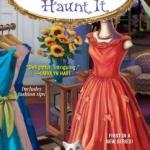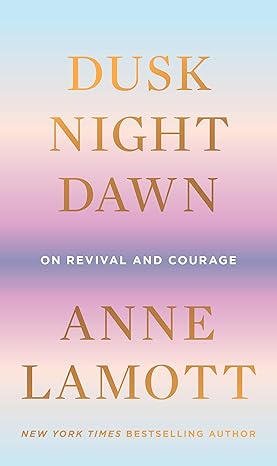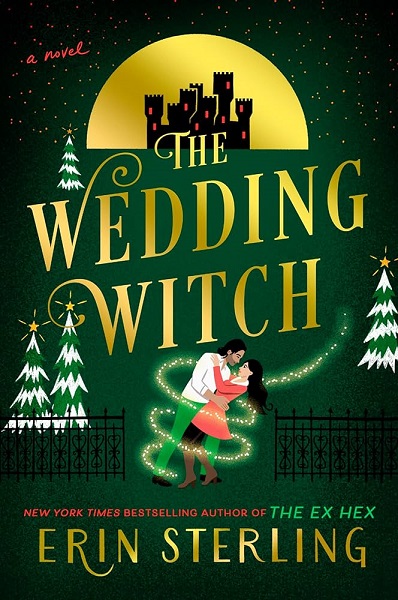
As World War II sweeps the continent and England steels itself against German attack, Maggie Hope, former secretary to Prime Minister Winston Churchill, completes her training to become a spy for MI-5. Spirited, strong-willed, and possessing one of the sharpest minds in government for mathematics and code-breaking, she fully expects to be sent abroad to gather intelligence for the British front. Instead, to her great disappointment, she is dispatched to go undercover at Windsor Castle, where she will tutor the young Princess Elizabeth in math. Yet castle life quickly proves more dangerous—and deadly—than Maggie ever expected. The upstairs-downstairs world at Windsor is thrown into disarray by a shocking murder, which draws Maggie into a vast conspiracy that places the entire royal family in peril. And as she races to save England from a most disturbing fate, Maggie realizes that a quick wit is her best defense, and that the smallest clues can unravel the biggest secrets, even within her own family.
I was surprised by how much I enjoyed Princess Elizabeth’s Spy, MacNeal’s second Maggie Hope novel (after January’s Mr. Churchill’s Secretary.) Perhaps I shouldn’t have been. It is, after all, right up my alley in terms of content: a mystery-cum-spy-novel set in WWII-era Britain and featuring an intelligent and capable young heroine. But I had read Mr. Churchill’s Secretaryand been slightly disappointed; the noveloffered an intriguing main character (Maggie Hope), an absorbing plot, and an interesting setting, but the writing itself showed the author’s inexperience in more than one instance. I was delighted to discover that in Princess Elizabeth’s Spy, MacNeal has grown into the promise of her earlier book. Her writing here is more assured; in contrast to her first book, the historical details are smoothly integrated, the plot is tight and for the most part well-paced, the characters are consistently well-drawn, and I spotted no glaring anachronisms.
One of the challenges of historical fiction is turning historical figures into well-rounded, believable characters while still staying true to what is known of them. One of my frustrations with Mr. Churchill’s Secretary was that MacNeal’s Churchill was somewhat stilted and two-dimensional, relying more on well-known mannerisms and anecdotes than on a deep understanding of the man himself. The Royals in Princess Elizabeth’s Spy, on the other hand, feel much more real and dimensional – particularly the young Elizabeth, who displays both the dignity and the liveliness of her real-life counterpart. I loved the idea of Maggie teaching the young princesses a cypher along with their maths. A scene depicting the King and Queen at target practice is charming and provides a needed moment of levity.
But the hardships and tragedy of war are never far away in this book. Rationing, German bombing raids, and growing casualties have become part of the fabric of everyday life. Among Maggie’s acquaintances is an injured pilot, while a dear friend is missing in action and presumed dead. Maggie’s personal life is troubled as well. She grieves for her missing love. Her relationship with her code-breaking father remains strained amid unanswered questions about her parents’ past and her mother’s death. And the undercover nature of her job means there are few people that Maggie can trust. As a result, she is becoming a more complex character — less open, warier, and in some strange way both tougher and more vulnerable. These added dimensions add to, rather than detract from, her appeal.
There were only a few things that bothered me in Princess Elizabeth’s Spy. First, it’s not immediately clear that the book begins months, rather than weeks, after the end of Mr. Churchill’s Secretary, and several rather important events in the intervening period remain unexplained until well into the novel. This left me confused for a while as to why Maggie is so devastated by the presumed death in action of a character whom we last saw not as a pilot but as a member of Churchill’s staff. Second, the Germans’ actions in the climax and resolution did not ring quite true, and the resolution seemed a little too facile. On the whole, however, MacNeal handles the elements of suspense and the ever-tricky question of how much to reveal to the reader fairly well.
Given MacNeal’s growth as an author and the hints of what is to come, I’m really looking forward to the third installment in Maggie’s story, due out May 21, 2013.
Category: Historical mystery; espionage
Series: Maggie Hope #2
Publisher: Bantam (Oct. 16, 2012)
Book source: Publisher’s review copy received through NetGalley
About the author: Susan Elia MacNeal’s first Maggie Hope novel, Mr. Churchill’s Secretary, was nominated for both an Edgar and a Dilys Award. She graduated from Wellesley College and worked for Random House, Viking/Penguin, and McGraw-Hill before becoming an associated editor at Dance Magazine. She has also written two nonfiction books. She lives with her husband and young son in Brooklyn. You can find out more about Susan and her books by visiting her website.
The Maggie Hope Series:









































